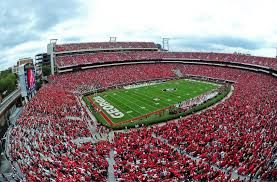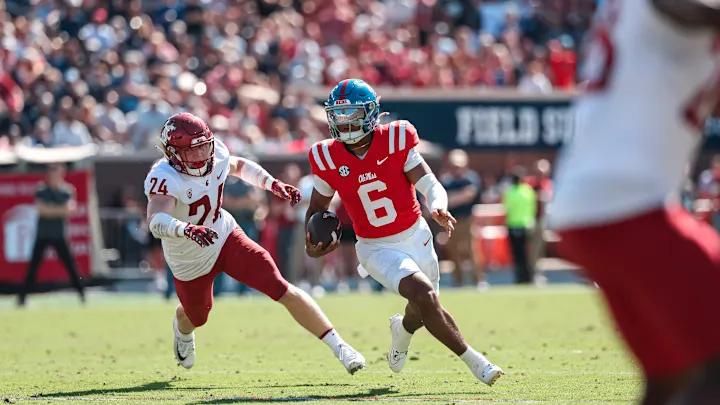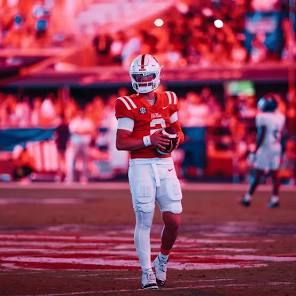The Upset in Athens: Ole Miss and the NIL Revolution
In the crisp autumn air of Athens, Georgia, on October 18, 2025, the Sanford Stadium roared with anticipation. The No. 5 Ole Miss Rebels, clad in their powder blue jerseys, strode onto the field to face the No. 9 Georgia Bulldogs in a pivotal SEC showdown. It was more than just a game; it was a testament to how the NIL era had rewritten the rules of college football, turning underdogs into contenders and shaking the foundations of the Southeastern Conference.
The story began long before kickoff. Back in the pre-NIL days, the SEC was a kingdom ruled by a few elite programs—Alabama, Georgia, LSU—with deep pockets from boosters and massive TV deals. Recruiting was a shadowy art, where promises were whispered but rarely fulfilled. Then came July 2021, when the NCAA finally allowed athletes to profit from their name, image, and likeness. Suddenly, the floodgates opened. Collectives sprang up, funneling millions into players' hands through endorsements, social media deals, and brand partnerships. No longer were recruits swayed solely by tradition or facilities; cold, hard cash became the great equalizer.
For Ole Miss, under head coach Lane Kiffin, NIL was a game-changer. Kiffin, ever the opportunist, leveraged the university's growing collective—"The Grove Collective"—to attract top talent that might have once headed to Tuscaloosa or Athens. Star quarterback Jaxson Dart, who had transferred in with a lucrative NIL package reportedly worth over $1 million from local businesses and national brands, became the face of this new era. Wide receiver Tre Harris, enticed by deals with apparel companies, and defensive end Princely Umanmielen, whose transfer from Florida was sealed with endorsements tied to his viral social media presence, rounded out a roster that looked more like an NFL squad than a mid-tier SEC team. "NIL didn't just level the field," Kiffin quipped in a pre-game presser. "It plowed it and planted new seeds."

But the shake-up wasn't without controversy. Legends like Nick Saban, now retired but still vocal, lamented how NIL had "hurt the SEC a little bit." He argued it eroded the conference's dominance by empowering northern schools in the Big Ten to outbid with urban market appeal and corporate ties. Transfers became rampant, rosters turned over like stock portfolios, and team chemistry suffered. In the SEC, where loyalty and grit once defined success, programs like Vanderbilt and Kentucky suddenly snagged five-star recruits with NIL war chests boosted by alumni donors. Alabama and Georgia, traditional powerhouses, adapted but grumbled about the "pay-for-play" vibe creeping in, with contracts that blurred lines between compensation and employment. A Carnegie Mellon study even found NIL had broadened choices for athletes, diluting the SEC's recruiting stranglehold and fostering parity—much to the chagrin of the old guard.
As the game kicked off at 3:30 p.m. ET on ABC, the impact was palpable. Georgia, boasting their own NIL-fueled stars like quarterback Carson Beck (with deals from Atlanta-based companies), struck first with a bruising touchdown run, leading 7-0. The home crowd of over 92,000 howled, sensing another dominant performance. But Ole Miss, emboldened by their NIL-assembled arsenal, fired back. Dart, cool under pressure, threaded a 45-yard bomb to Harris, who outran Georgia's secondary for a score. Tie game, 7-7. The Rebels' defense, bolstered by transfers like Umanmielen—who had chosen Oxford over staying in Gainesville for better NIL opportunities—sacked Beck twice in the first half, forcing punts and shifting momentum.

Halftime arrived with Ole Miss up 17-14, a scoreline that had SEC fans across the conference buzzing on social media. "This is NIL football," one X post read. "Ole Miss buying their way to contention." But it was more nuanced: NIL had forced every team to innovate. Texas A&M, another SEC newcomer, had used oil money-backed collectives to build a top-10 roster, while Tennessee's fan-funded deals kept them competitive against Alabama. The era had injected chaos—rosters flipped annually, with players like portal kings chasing bigger paydays—but it also brought excitement. No longer was the SEC a predictable hierarchy; upsets loomed every Saturday.

The second half turned epic. Georgia rallied with a field goal, but Ole Miss's NIL stars shone brightest. In the fourth quarter, down 24-21, Dart orchestrated a 75-yard drive, capping it with a scrambling touchdown pass to a freshman tight end whose NIL deal with a sports drink brand had made headlines. The extra point sailed true: 28-24, Rebels. Georgia's final drive stalled at midfield, Umanmielen delivering the game-sealing sack. As the clock hit zero, Ole Miss players mobbed each other, confetti raining down in enemy territory.
In the post-game glow, Kiffin hugged Dart, the quarterback's NIL-branded helmet gleaming under the lights. "This win? It's for the new SEC," Kiffin said. "NIL shook us up, made us hungrier, fairer. The old kings are still strong, but now anyone's got a shot at the throne."
As the Rebels boarded the bus back to Oxford, the SEC landscape felt forever altered. NIL hadn't just changed recruiting; it had democratized dreams, turning games like this into symbols of a bolder, more unpredictable era. And on that October day in 2025, Ole Miss stood tall as its latest conqueror.